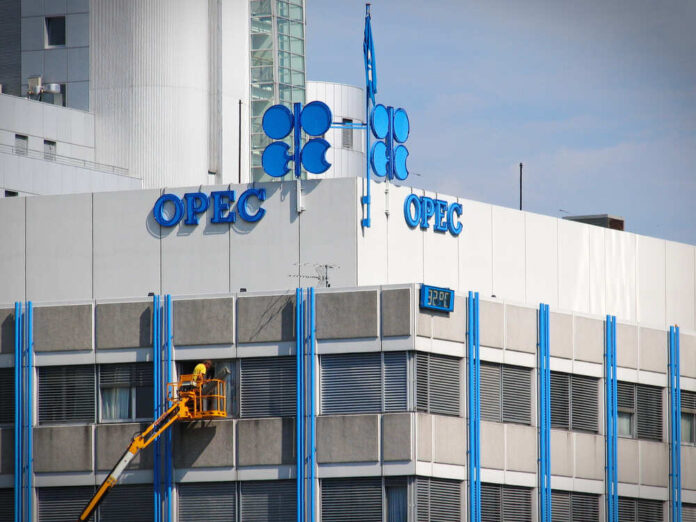
The price of oil has risen in response to a Sunday announcement from Saudi Arabia about additional oil production cuts.
Saudi Arabia, the world’s top oil exporter and key member of the Organization of the Petroleum Exporting Countries (OPEC), announced more oil production cuts on Sunday — including extending the current production cuts and reducing production by an additional one million barrels per day for at least a month.
In April, Saudi Arabia reduced oil production by 500,000 barrels per day. This cut has now been extended through December 2024.
The announcement came via a statement from Saudi Arabia’s Energy Ministry.
“The Kingdom will implement an additional voluntary reduction in its production of crude oil, amounting to one million barrels per day, starting in July for a month that can be extended, so that the Kingdom’s production becomes 9 million barrels per day, and the total voluntary reduction of the Kingdom is 1.5 million barrels per day,” the statement said, according to a translation.
In response to the news, brent crude — a global oil price benchmark — rose 1.61%, according to Google Finance.
This news comes after the OPEC+ oil alliance had already slashed oil production by more than one million barrels per day back in April, which was in addition to the two million barrels per day cut that was announced by OPEC+ in October of last year.
NEW: Gas will become “marginally more expensive” as soon as July as Saudi Arabia will reduce its oil output by 1M barrels per day.
The move is in addition to the two previous rounds of cuts by OPEC+.
Who is going to have to pay for this? The American consumer.
“The Saudis can… pic.twitter.com/o6YKoAb5Mw
— Collin Rugg (@CollinRugg) June 5, 2023
United Refining Company Chairman and CEO John Catsimatidis reacted to the latest production cut during a Monday appearance on Fox Business Channel’s “Cavuto: Coast to Coast.”
“The Saudis, the Russians will create — stir the pot and make sure prices go higher than lower? So exactly what’s going to happen? We don’t know. But it was $68 a barrel. That’s the best price on Friday that it’s ever been. And today, it’s 72, 73. So prices will tick higher,” Catsimatidis said.
He went on to criticize President Joe Biden and the Democrats for “screwing” Americans with their green energy, anti-oil agenda — which, coupled with the cuts from OPEC+, has forced the public to pay more for oil and gas, despite the fact that the U.S. is perfectly capable of being energy independent.
“But let’s not forget North America, Canada, the United States is capable of being the largest oil supplier in the world if we had Washington that would help it happen,” Catsimatidis explained.
“If the Democratic Party wants to be re-elected, how do you say, stop screwing the American people, the American consumer?” he asked.














